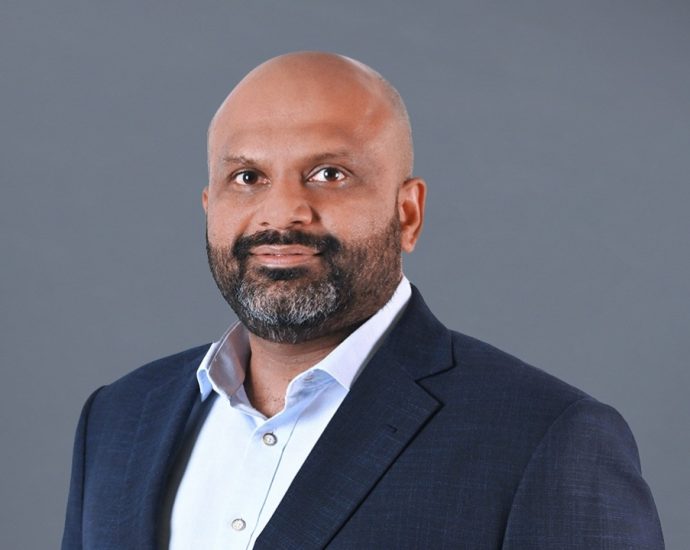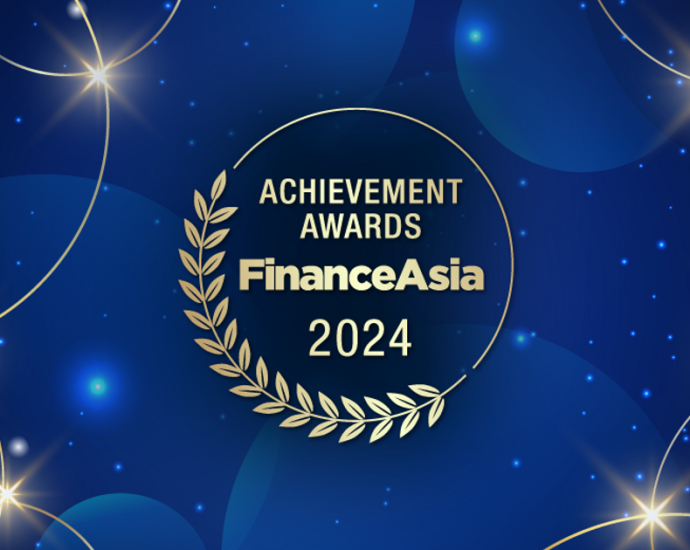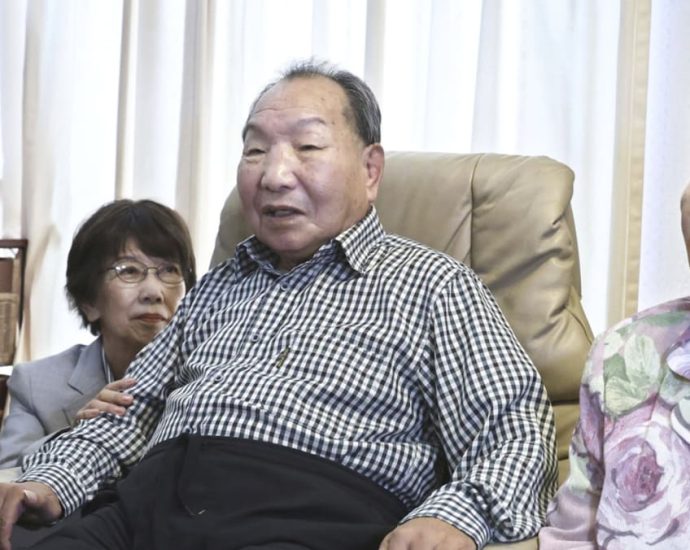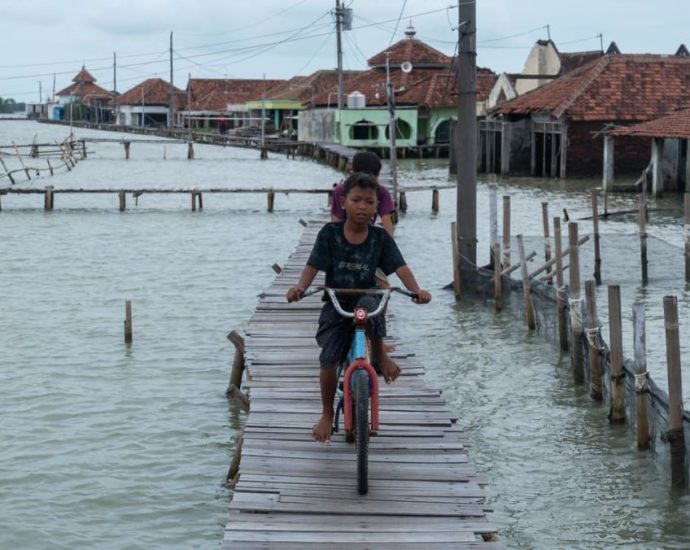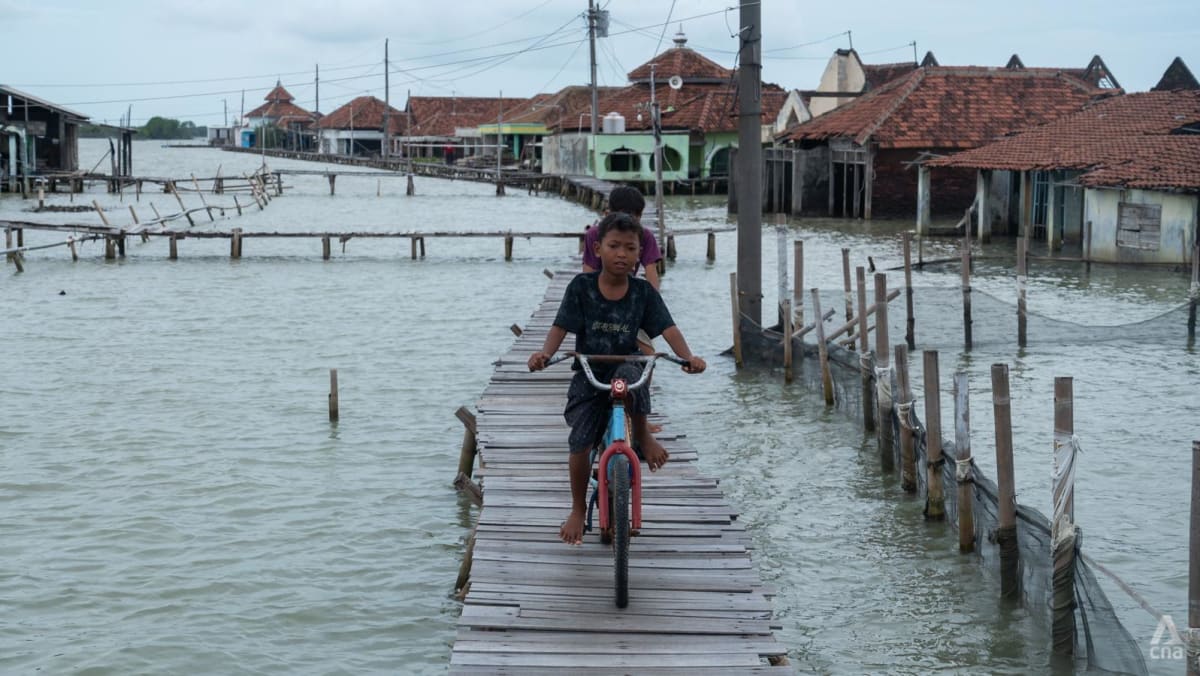Asia’s Best Companies Poll 2025: Market winners | FinanceAsia
.png&h=630&w=1200&q=100&v=5f99a4b43f&c=1)
For a 25th year, FinanceAsia publishes its highly regarded benchmark of Asia’s best companies.
Based on nomination by Asia’s active community of influential investors and financial analysts, the poll evaluates the corporate behaviour and performance of Asian peers over the past 12 months.
The FA team is delighted to announce the 2025 winners below for the market categories.The industry winners can be found here.
Once again, following positive market participation, we have decided to award up to three medals per category to reflect corporate achievements. Gold, Silver and Bronze medallists are detailed where applicable.
Congratulations to all the winners. Read on for the winning companies in the following markets:
BEST MANAGED COMPANY
China
Gold – China Unicom (Hong Kong) Ltd
Silver – China Telecom
Bronze – China Mobile
Hong Kong SAR
Gold – Sun Hung Kai Properties Ltd
Silver – Link REIT
Silver – Sino Land
Bronze – MTR Corporation Limited
India
Gold – Tata Motors
Silver – Axis Capital
Bronze – Bajaj Finance
Indonesia
Gold – PT Bank Rakyat Indonesia (Persero) Tbk
Silver – Astra International
Silver – PT Bank Mandiri (Persero) Tbk
Bronze – GoTo Gojek Tokopedia
Malaysia
Gold – Maybank
Silver – CIMB Bank Berhad
Bronze – AmFunds Investment Management Berhad
Bronze – YTL Corporation Berhad
Philippines
Gold – Ayala Corporation
Silver – Bank of the Philippine Islands
Silver – Megawide Construction Corporation
Bronze – Citicore Renewable Energy Corporation
Singapore
Gold – DBS Bank
Silver – Singapore Airlines
Bronze – CapitaLand
South Korea
Gold – SK Hynix
Silver – Samsung Electronics
Bronze – Hyundai Motor Co Ltd
Taiwan
Gold – Semiconductor Manufacturing Company, Ltd
Silver – CTBC Financial Holding
Silver – MediaTek Inc.
Bronze – Far Eastern New Century Corporation
Bronze – Sercomm Corporation
Thailand
Gold – B. Grimm Power PCL
Silver – Global Power Synergy PCL
Silver – Thai Oil Public Company Limited
Bronze – Central Pattana
Bronze – Gulf Energy Development PCL
MOST COMMITTED TO ESG
China
Gold – Unicom (Hong Kong) Ltd
Silver – China Telecom
Bronze – China Mobile
Bronze – Trip.com
Hong Kong SAR
Gold – Sun Hung Kai Properties Ltd
Silver – Link REIT
Bronze – Hengan International Group Company, Ltd.
India
Gold – Axis Capital
Silver – Bajaj Finance
Bronze – Tata Consultancy Services Ltd
Indonesia
Gold – PT Bank Mandiri (Persero) Tbk
Silver – PT Bank Rakyat Indonesia (Persero) Tbk
Bronze – GoTo Gojek Tokopedia
Malaysia
Gold – Yinson Holdings Berhad
Silver – Maybank
Bronze – AmFunds Investment Management Berhad
Philippines
Gold – Ayala Corporation
Silver – Megawide Construction Corporation
Bronze – SM Investments Corporation
Singapore
Gold – OCBC Bank
Silver – City Developments Limited
Bronze – Seatrium
South Korea
Gold – Samsung Electronics
Silver – Hyundai Motor Co Ltd
Bronze – Hanwha Ocean
Taiwan
Gold – Wistron NeWeb Corporation
Silver – CTBC Financial Holding
Bronze – Sercomm Corporation
Thailand
Gold – Global Power Synergy PCL
Silver – B. Grimm Power PCL
Bronze – Gulf Energy Development PCL
Vietnam
Gold – Vingroup
Silver – Masan Group
Bronze – THACO Group
BEST INVESTOR RELATIONS
China
Gold – China Telecom
Silver – China Unicom (Hong Kong) Ltd
Bronze – China Mobile
Hong Kong SAR
Gold – Sun Hung Kai Properties Ltd
Silver – Link REIT
Silver – MTR Corporation Limited
Bronze – Midea International Corp Co Ltd
India
Gold – ICICI Bank Ltd
Silver – HDFC Bank Ltd
Indonesia
Gold – PT Bank Rakyat Indonesia (Persero) Tbk
Silver – GoTo Gojek Tokopedia
Bronze – PT Bank Mandiri (Persero) Tbk
Malaysia
Gold – CIMB Bank Berhad
Silver – Maybank
Bronze – Yinson Holdings Berhad
Philippines
Gold – Bloomberry Resorts Corporation
Silver – Ayala Corporation
Silver – SM Investments Corporation
Bronze – Meralco
Singapore
Gold – CapitaLand
Silver – SATS Ltd
Bronze – Mapletree Investments
South Korea
Gold – Hanwha Ocean
Silver – LG Electronics
Bronze – SK Hynix
Taiwan
Gold – Wistron NeWeb Corporation
Silver – Far Eastern New Century Corporation
Bronze – Sercomm Corporation
Thailand
Gold – PTT Public Company Limited
Silver – B. Grimm Power PCL
Bronze – Global Power Synergy PCL
Bronze – Gulf Energy Development PCL
Vietnam
Gold – Vingroup
Silver – Masan Group
Bronze – Mobile World Investment Corporation
BEST LARGE CAP COMPANY
China
Gold – China Unicom (Hong Kong) Ltd
Silver – China Telecom
Bronze – China Mobile
Hong Kong SAR
Gold – Link REIT
Silver – Sun Hung Kai Properties Ltd
Bronze – CLP Holdings Ltd
India
Gold – Kotak Mahindra Bank Ltd
Silver – HDFC Bank Ltd
Bronze – Mazagon Dock Shipbuilders Ltd
Bronze – Tata Consultancy Services Ltd
Indonesia
Gold – PT Bank Mandiri (Persero) Tbk
Silver – PT Bank Rakyat Indonesia (Persero) Tbk
Bronze – Astra International
Malaysia
Gold – Maybank
Philippines
Gold – SM Investments Corporation
Silver – International Container Terminal Services, Inc.
Bronze – SM Prime Holdings, Inc.
South Korea
Gold – Hyundai Motor Co Ltd
Silver – Hanwha Ocean
Silver – POSCO
Bronze – Samsung Biologics
Taiwan
Gold – Taiwan Semiconductor Manufacturing Company, Ltd
Silver – MediaTek Inc.
Bronze – EVA Airways Corporation
Bronze – Far EasTone Telecommunications Co., Ltd
Thailand
Gold – Bangkok Dusit Medical Services PCL
Silver – PTT Exploration and Production (PTTEP)
Bronze – Advanced Info Service PCL
BEST MID CAP COMPANY
China
Gold – AsiaInfo Technologies Limited
Hong Kong SAR
Gold – CIMC Enric Holdings Ltd
Silver – Fortune REIT
India
Gold – Prestige Estates Projects Ltd
Silver – ICICI Securities Ltd
Indonesia
Gold – GoTo Gojek Tokopedia
Malaysia
Gold – Sunway Berhad
Silver – YTL Corporation Berhad
Bronze – Hap Seng Consolidated Berhad
Philippines
Gold – Manila Water Company, Inc.
Silver – Jollibee Foods Corporation
Bronze – Aboitiz Power
South Korea
Gold – LG Electronics
Silver – KIWOOM Securities
Taiwan
Gold – Far Eastern New Century Corporation
Silver – Arcadyan Technology Corporation
Bronze – Elite Material Co Ltd
Thailand
Gold – Minor International PCL
Silver – Global Power Synergy PCL
Bronze – WHA Corporation PCL
Vietnam
Gold – Vingroup
Silver – Masan Group
Bronze – Mobile World Investment Corporation
BEST SMALL CAP COMPANY
China
Gold – Digital China Holdings
Hong Kong SAR
Gold – Far East Consortium International Limited
Silver – Vitasoy International Holdings Limited
Bronze – SF REIT
India
Gold – Aavas Financiers
Silver – Indian Energy Exchange Ltd
Malaysia
Gold – Yinson Holdings Berhad
Silver – Top Glove Corporation Berhad
Philippines
Gold – Citicore Renewable Energy Corporation
Silver – Bloomberry Resorts Corporation
Silver – Megawide Construction Corporation
Bronze – D&L Industries Inc.
Taiwan
Gold – Sercomm Corporation
Silver – Fositek Corporation
Bronze – Merida Industry Co., Ltd
Thailand
Gold – Ratch Group PCL
Silver – Bangkok Chain Hospital PCL
Bronze – Central Plaza Hotel PCL
Vietnam
Gold – Vinh Hoan Corporation
Silver – CMC Corporation
Silver – International Dairy Products JSC
Bronze – GELEX Group
BEST CEO
China
Gold – Zhongyue Chen – China Unicom (Hong Kong) Ltd
Silver – Jie Yang – China Mobile
Bronze – Xiaowei Luan – China Communications Services
Bronze – Biao He – China Mobile
Hong Kong SAR
Gold – Raymond Kwok – Sun Hung Kai Properties Ltd
Silver – George Hongchoy – Link REIT
Bronze – Shixian Lai – ANTA Sports Products Ltd
India
Gold – Deepak C. Mehta – Deepak Nitrite Ltd
Silver – T.V. Narendran – Tata Steel
Indonesia
Gold – Sunarso – PT Bank Rakyat Indonesia (Persero) Tbk
Silver – Darmawan Junaidi – PT Bank Mandiri (Persero) Tbk
Silver – Royke Tumilaar – PT BNI (Persero) Tbk
Bronze – Ali Rukmijah – Bank Sahabat Sampoerna
Malaysia
Gold – Khairussaleh Ramli – Maybank
Silver – Tony Fernandes – Capital A Berhad
Bronze – Novan, Amirudin – CIMB Bank Berhad
Philippines
Gold – Edgar B. Saavedra – Megawide Construction Corporation
Silver – Teresita Sy-Coson – BDO Unibank
Silver – Oliver Y. Tan – Citicore Renewable Energy Corporation
Bronze – Jeffrey Lim – SM Prime Holdings, Inc.
Singapore
Gold – Piyush Gupta – DBS Bank
Silver – Loh Boon Chye – Singapore Exchange
South Korea
Gold – Chey Tae-won – SK Group
Silver – Han Jong-hee – Samsung Electronics
Bronze – Kim Seung-youn – Hanwha Group
Taiwan
Gold – C. C. Wei – Taiwan Semiconductor Manufacturing Company, Ltd
Silver – Suming, Chen – Universal Microwave Technology, Inc.
Bronze – Vivian Ling – Caliway Biopharmaceuticals Co. Ltd
Bronze – Chee Ching – Far Eastone Telecommunications Co., Ltd
Thailand
Gold – Dr. Harald Link – B. Grimm Power PCL
Silver – Niwat Adirek – BCPG PCL
Silver – Sarath Ratanavadi – Gulf Energy Development PCL
Bronze – Dr. Chalerm Harnphanich – Bangkok Chain Hospital PCL
Bronze – Dr. Poramaporn Prasarttong-osoth – Bangkok Dusit Medical Services PCL
Vietnam
Gold – Danny Le – Masan Group
BEST CFO
China
Gold – Yuzhuo Li – China Unicom (Hong Kong) Ltd
Silver – Ronghua Li – China Mobile
Bronze – Aqiang Shen – China Communications Services
Hong Kong SAR
Gold – Toby Xu – Alibaba Group (HK)
Silver – Alexandre Jean Keisser – CLP Holdings Ltd
India
Gold – Samir Seksaria – Tata Consultancy Services Ltd
Indonesia
Gold – Sigit Prastowo – PT Bank Mandiri (Persero) Tbk
Silver – Viviana Dyah Ayu Retno Kumalasari – PT Bank Rakyat Indonesia (Persero) Tbk
Bronze – Henky Suryaputra – Bank Sahabat Sampoerna
Malaysia
Gold – Malique Firdauz Ahmad Sidique – Maybank
Silver – Joyce Tan – Sunway Berhad
Bronze – Chek Wu Kong – Duopharma Biotech Berhad
Bronze – Guillaume François Jest – Yinson Holdings Berhad
Philippines
Gold – John Nai Peng Ong – SM Prime Holdings, Inc.
Silver – Jez G. dela Cruz – Megawide Construction Corporation
Bronze – Estella Tuason-Occeña – Bloomberry Resorts Corporation
Bronze – Richard Shin – Jollibee Foods Corporation
Singapore
Gold – Yuen Kuan Moon – Singtel
Silver – Koo Chung Chang – AIA Group
Bronze – Lim Hock Chye – Keppel Corporation
Taiwan
Gold – Henry Hao Jen Wang – Fubon Bank
Silver – Wendell Huang – Taiwan Semiconductor Manufacturing Company, Ltd
Bronze – David (Chien Cheng) Wang – Far Eastern New Century Corporation
Thailand
Gold – Chanamas Sasnanand – PTT Exploration and Production (PTTEP)
Silver – Yupapin Wangviwat – Gulf Energy Development PCL
Bronze – Siriwong Borvornboonrutai – B. Grimm Power PCL
Vietnam
Gold – Max Sunarcia – THACO Group
Silver – Do Thi Quynh Trang – Masan Group
BEST COO
China
Gold – Jian Qin – China Unicom (Hong Kong) Ltd
Silver – Zhanwei Cui – China Communications Services
Malaysia
Gold – Ariff Azahar – Maybank
Philippines
Gold – Carlos Cruz – International Container Terminal Services, Inc.
South Korea
Bronze – Nam Seok-Woo – Samsung Electronics
Taiwan
Gold – Tungyi Wu – Universal Microwave Technology, Inc.
Silver – Ben Lin – Sercomm Corporation
Bronze – Jeffrey Gau – Wistron NeWeb Corporation
Thailand
Bronze – Nopadej Karnasuta – B. Grimm Power PCL
Vietnam
Silver – Metha Pingsuthiwong – Tisco Group
BEST CTO
China
Gold – Jun Zhi, Wang – China Unicom (Hong Kong) Ltd
Taiwan
Gold – Jyh-Shing Roger Jang – E-Sun
Thailand
Bronze – Woottichai Jarernpol – Krungthai Card PCL
Indonesia
Gold – Arga M. Nugraha – PT Bank Rakyat Indonesia (Persero) Tbk
Thailand
Gold – Dennis Thorsten Trawnitschek – SCB X PCL
Taiwan
Silver – Chris Lin – Taiwan Semiconductor Manufacturing Company, Ltd
Thailand
Silver – Sutthikan Rungsrithong – TMBThanachart Bank Plc.
MOST COMMITTED TO DEI
China
Gold – China Telecom
Silver – China Mobile
Bronze – China Communications Services
Hong Kong SAR
Gold – Sun Hung Kai Properties Ltd
Silver – Henderson Land Development Co., Ltd
Bronze – Link REIT
India
Gold – Travelogy India Pvt Ltd
Indonesia
Gold – PT Bank Mandiri (Persero) Tbk
Silver – PT Bank Rakyat Indonesia (Persero) Tbk
Bronze – GoTo Gojek Tokopedia
Malaysia
Gold – CIMB Bank Berhad
Silver – Maybank
Bronze – Top Glove Corporation Berhad
Philippines
Gold – Citicore Renewable Energy Corporation
Silver – Ayala Corporation
Bronze – International Container Terminal Services, Inc.
South Korea
Gold – Hanwha Ocean
Silver – Samsung Electronics
Bronze – SK Hynix
Taiwan
Gold – Wistron NeWeb Corporation
Silver – CTBC Financial Holding
Bronze – Sercomm Corporation
Thailand
Gold – Gulf Energy Development PCL
Silver – Global Power Synergy PCL
Bronze – B. Grimm Power PCL
Vietnam
Gold – Vingroup
Silver – Mobile World Investment Corporation
Bronze – Masan Group
BEST USE OF TECHNOLOGY
China
Gold – China Unicom (Hong Kong) Ltd
Silver – China Telecom
Bronze – China Mobile
Hong Kong SAR
Gold – CIMC Enric Holdings Ltd
Silver – Hongkong Land Holdings Limited
Bronze – Swire Properties
India
Gold – Dito Telecommunity Corporation
Silver – Sun Telecommunication
Indonesia
Gold – GoTo Gojek Tokopedia
Silver – PT Bank Rakyat Indonesia (Persero) Tbk
Bronze – Telkom
Malaysia
Gold – KPJ Healthcare Berhad
Silver – Yinson Holdings Berhad
Bronze – Uzma Berhad
Philippines
Gold – Bank of the Philippine Islands
Silver – Union Bank
Bronze – Globe Telecom, Inc.
South Korea
Gold – Samsung Biologics
Silver – Hanwha Ocean
Bronze – SK Hynix
Taiwan
Gold – Sercomm Corporation
Silver – MediaTek Inc.
Bronze – Taiwan Semiconductor Manufacturing Company, Ltd
Thailand
Gold – SCB X PCL
Silver – Advanced Info Service PCL
Bronze – TMBThanachart Bank Plc.
Vietnam
Gold – Vingroup
Silver – Masan Group
Bronze – FPT Corporation
¬ Haymarket Media Limited. All rights reserved.



.png&h=630&w=1200&q=100&v=5f99a4b43f&c=1)
